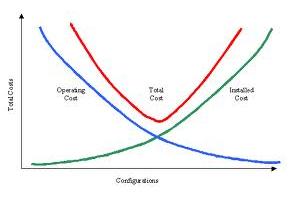Importance Of Cost Analysis: Costs as a basis for analysis and are estimated costs which may be incurred if any one of several alternative courses of action is adopted. Different types of costs involve varying kinds of considerations in managerial analysis for decision making. For example, differential and out-of-pocket costs are types of costs which attempt to envision and evaluate future conditions in the light of the current situation.

Importance Of Cost Analysis for Sunk Costs:
The measure of a sunk cost is the difference between book value at any time and the disposal value of the facilities. While these isolated illustrations stress the managerial aspect of accounting, it must be realized that, in the final analysis, all accounting is management accounting. For a long time the major reporting emphasis was on the balance sheet, but more and more importance has been placed on the income statement. The rapid rise and growth of business units into large-scale enterprises caused cost accounting to develop as a separate division of the accounting function.
Cost accounting should be regarded as the first step in distinguishing a major part of accounting as managerial accounting. It instituted the concepts of cost planning and cost control, both of which are essential to managing successfully the multiple divisions and interests of a modern organization. Cost accounting’s importance necessitates the establishment of that type of cost system which best fulfills the needs of management.




